The latest research on infant sleep has encouraged health professionals in the UK to change the advice they give to new parents. Below, you’ll discover some of the best tips they have to offer.
After reading about it, you will:
- Be aware of the latest work being done in baby care research
- Discard out-of-date infant sleep advice
- Find it easier to put your baby to bed
- Apply new techniques to managing your baby’s sleep
- Enjoy a better-quality daytime with your child
- Appreciate the importance of parents’ sleep requirements
- Cope with anxiety and negative thoughts in relation to being a new parent
A new kit for NHS health practitioners launched by Durham University’s Infancy and Sleep Centre is helping parents beat sleepless nights. Aiming to promote new parental attitudes and behaviour changes, Sleep, Baby & You (SBY) is a promising new body of work adjusting expectations and reducing negative thinking in new parents. Suggesting a fresh approach to infant sleep, it encourages responsive baby care ‘in the face of’ sleep disruptions and fatigue. It also emphasises the importance of parental well-being during the first year of parenthood.
One of the biggest concerns regarding new parents is their lack of sleep. Until recently there has been little training on the matter for health visitors and community nurses. The newly researched guide is based on the Australian Possums Sleep Programme. This focuses on dispelling myths and negative thinking in infant care. The new intervention looks to reduce the use of popular ‘cry it out’ methods of baby sleep training.
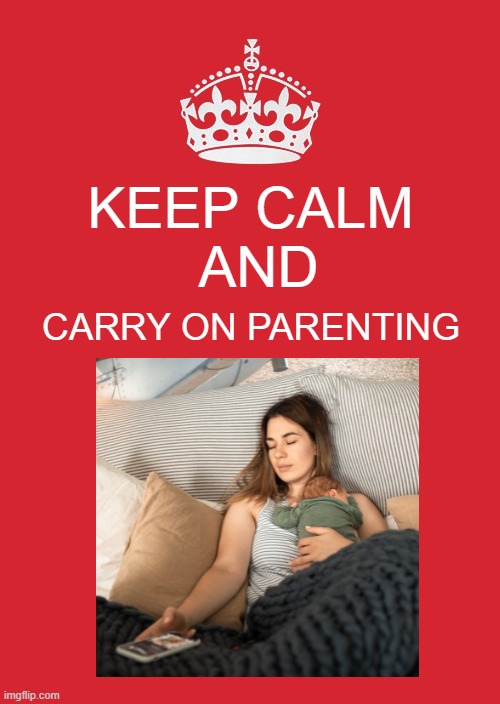

New Programme For Parents ‘Sleep, Baby & You’ – The Basics:
- Aims to make night-times easier for parents
- Expects better sleep to lead to more enjoyable daytimes with your baby
- Provides practical tips on how to accomplish infant sleep goals
- Dispels myths about baby night-time needs
- Is a fresh and healthier approach than previous guidance
- Focuses on new parent wellbeing just as much as the child’s
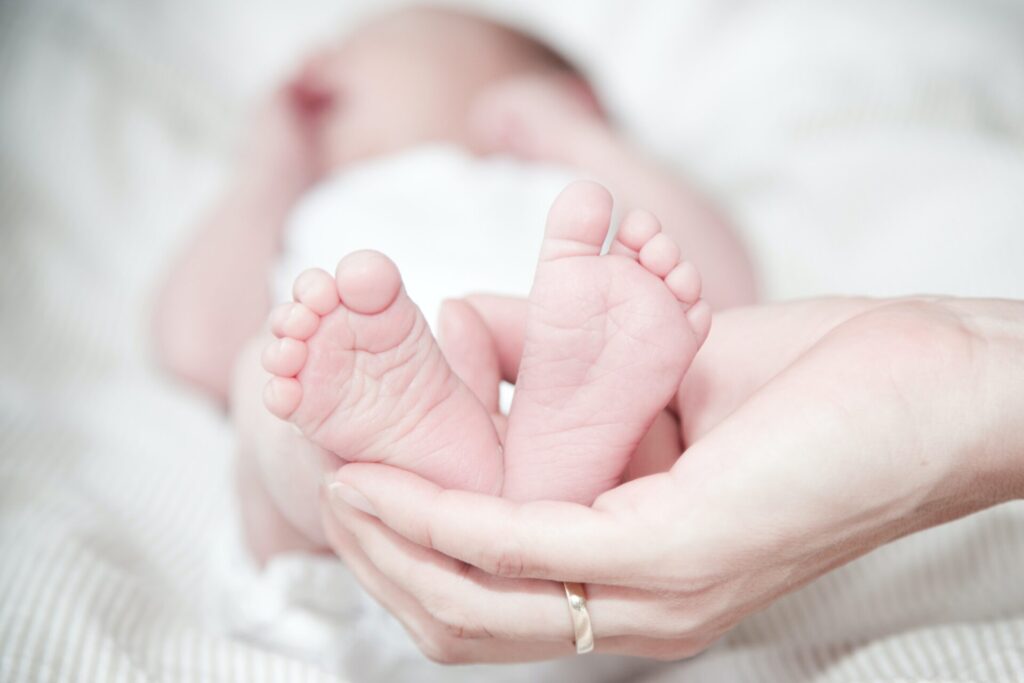
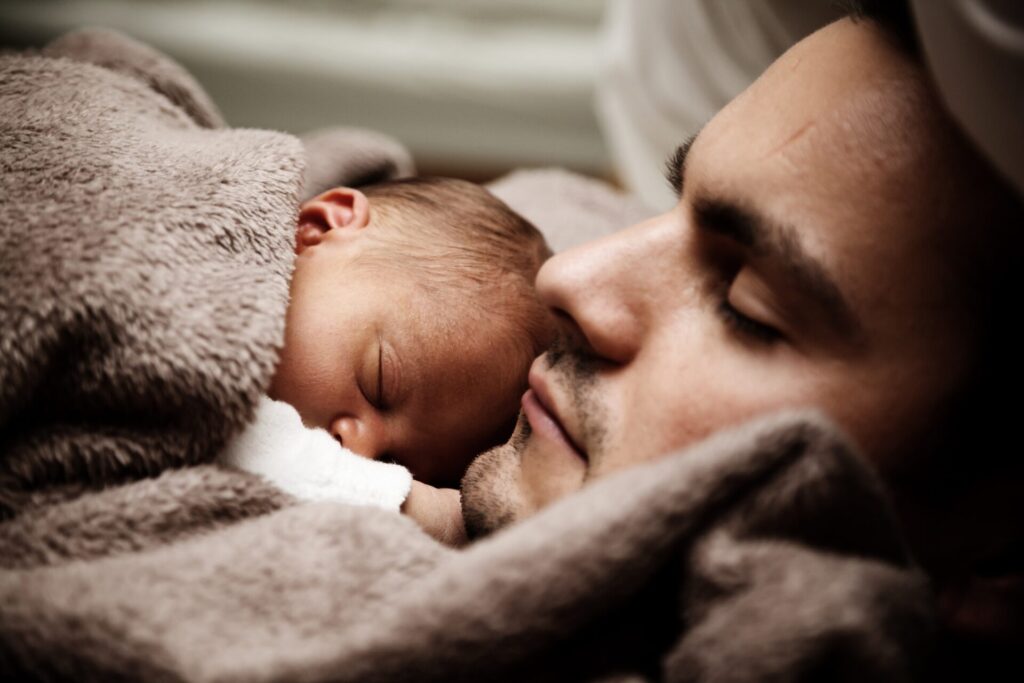
Research and findings
Until recently, many ideas about how much sleep babies should have was based on studies undertaken in the 1950s and 60s. Prevailing thoughts at the time suggested that it was normal for infants to sleep throughout the night. Updated research reveals that it is common, and even perfectly fine for babies to wake up and want to feed at night during the first year and beyond.
The centre’s director, Professor Helen Ball, says the new kit is about ‘framing what is normal or reframing expectations about what is normal and what we don’t need to be anxious about’.
‘There’s lots of information about how sleep works that the general public often hasn’t encountered before’, explains Ball of the new study, adding that the lack of sleep often experienced by new parents ‘has been linked to increased symptoms of depression and anxiety among new mothers and fathers’.
Much of it is about guiding people on how to cope at being new parents, with practical tips and suggestions. One example of such advice regards the importance of acting calm even when feeling far from it. The report suggests rather than lying a sscreaming baby down, cuddle them and comfort them until they wind down. ‘If you are wound up then the baby will pick up on that’ says Ball.
According to professor, it is more important to have a consistent waking up time than one for going to sleep. She points out that parents should be discouraged from fixating on afternoon naps too. Professor believes naps should happen on an ad hoc basis.
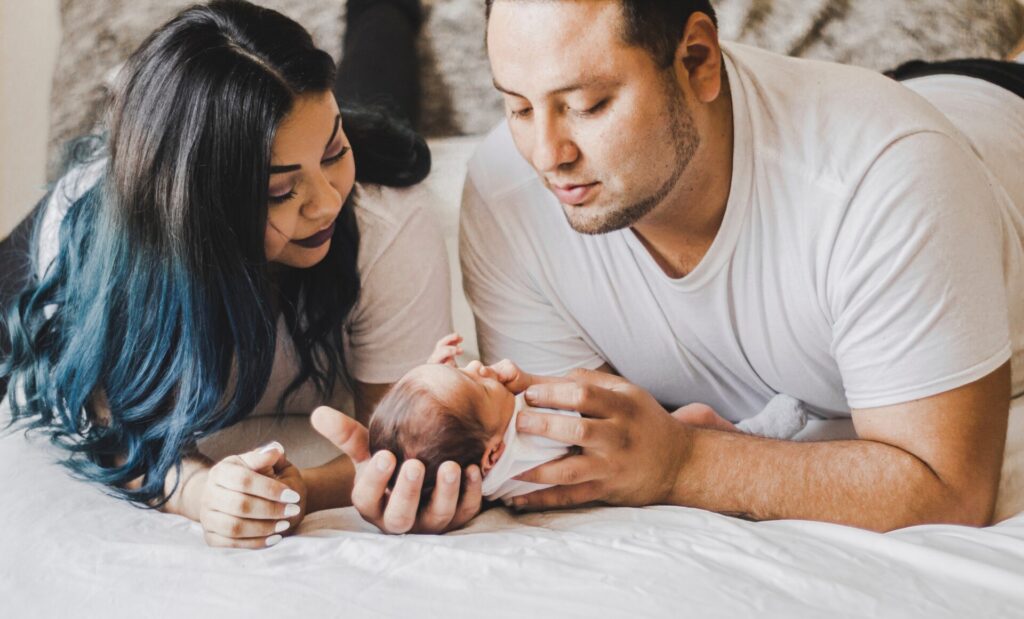

Positive Feedback For The New Sleep Approach From Parents & Professionals
Differing from much of the sleep training previously in use, Ball emphasises how with the new study she ‘wanted to find a support programme that NHS staff could use to help parents who are struggling with infant sleep’. The result is a celebration of 22 years of world-leading research. The last four years of the study were funded by the Economic and Social Research Council.
The intervention has been field-tested by 164 practitioners, delivering it to over 500 new parents and babies across the UK. Encouraging experimentation and responsive parenting, it has helped parents revaluate their expectations of infant sleep requirements and approaches by offering supportive strategies. As well as helping develop babies’ sleep cycles and overall well-being, it has been teaching new parents to take control of anxiety and negative thinking which can easily escalate during those sleepless formative months.
Although the study is chiefly aimed at health professionals, a booklet specifically for new parents has also been produced.
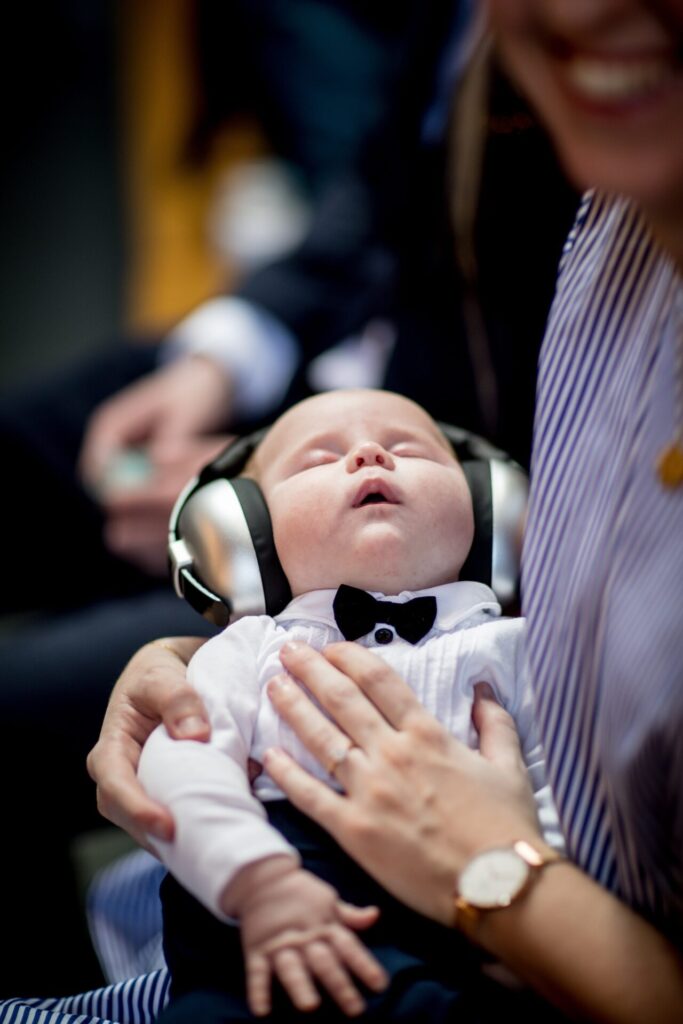
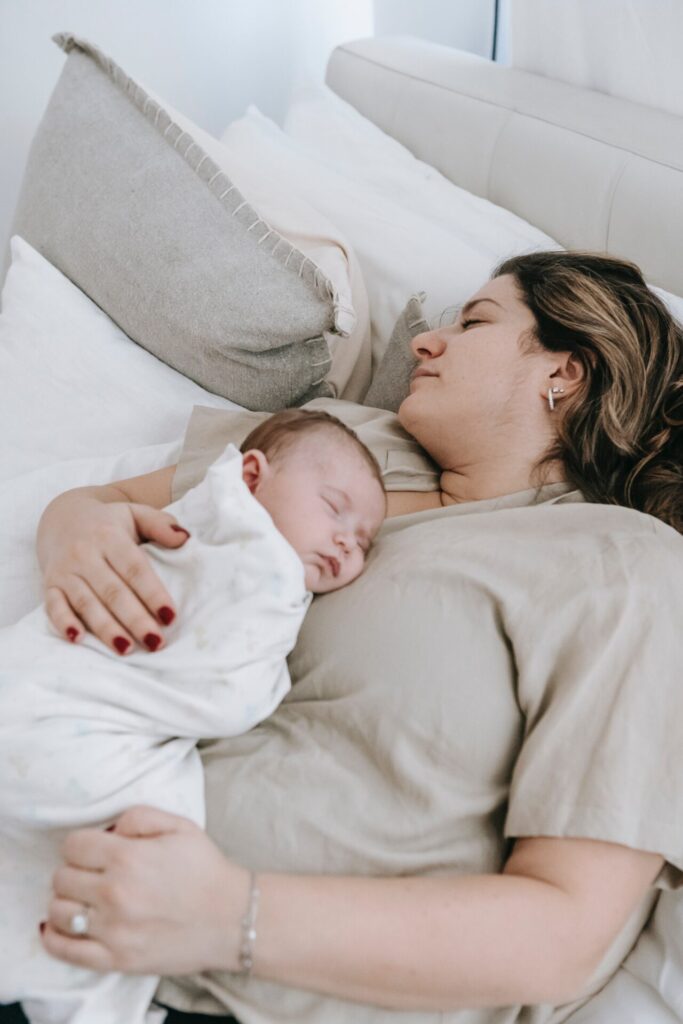
The Main Concepts Of ‘Sleep, Baby & You’
Presented here in a way that should be easy to understand, we explain some of the primary pieces of advice the decades-spanning research has to offer:
When It Comes To Sleep, Parents Should Consider Children’s Circadian Rhythms
The biological processes of the ‘body clock’ which dictate how long we need to sleep and involve hormone production, temperature, and heart rate are collectively known as circadian rhythms. For new-born babies it typically demands they get about 18 hours of sleep a day. It is important to realise that this does not necessarily mean they must snooze that long in one continuous sleep – it is perfectly normal for infants to accumulate their sleep goal via shorter, 2-to-3-hour naps throughout the day.
Parents Need To Accept That Night-Waking Is A Normal Part Of Infants Sleep
Despite what some people may think, instead of being zonked out until morning, it is also normal for babies to wake up several times during the night. In fact, few babies sleep all night, every night until they are about one year of age.
This is because new-borns have very small stomach which can’t hold much. As a result, they must often wake to feed. It becomes less of an issue as they grow, and their bodies can contain larger quantities of food. One study showed that only 7% of babies had settled (regularly slept for a period of 5 hours or more) before their first birthday.
Forcing your child to sleep throughout the night can make them develop mature sleep patterns out of sync with their circadian rhythms. This can lead to problems for them with genes, hormone production, temperature regulation. It can also lead to problems for you when it comes to breastfeeding. For more advice and information on night-waking babies see our guide Why You Shouldn’t Worry About Your Baby’s Sleep.
Parents Need To Rethink Sleep Training Their Baby
Well-meaning family and friends, some parenting advice books, and various online sources can unintentionally add stress to already sleep-deprived new parents by making them question why they are ‘failing’ to develop their child’s independent sleeping habits. They erroneously believe that infants need to be trained to sleep for the entire night, often by cuddling, feeding or rocking them into a slumber.
When babies then act like they don’t want to sleep, the parents are led to believe they are ‘having problems’ sleeping, when in fact everything is likely normal for the child’s age and developmental stage. The result is often a pair of extremely fatigued adults unnecessarily feeling like failures with a growing resentment towards their offspring, and a confused baby that becomes more distressed as they pick up on their parents’ fluster.
Prof Ball says that ‘people do feel as if they must be doing something wrong. That they must be parenting improperly somehow’, however they should ditch any guilt or anxiety they may be feeling about not being able to get their child to sleep.
Instead, parents should remain calm, even if they aren’t really feeling that way, and spend some quality time with their child in a loving, peaceful manner. If they don’t need to go to sleep then, quite frankly, they won’t go to sleep. And that’s perfectly normal.

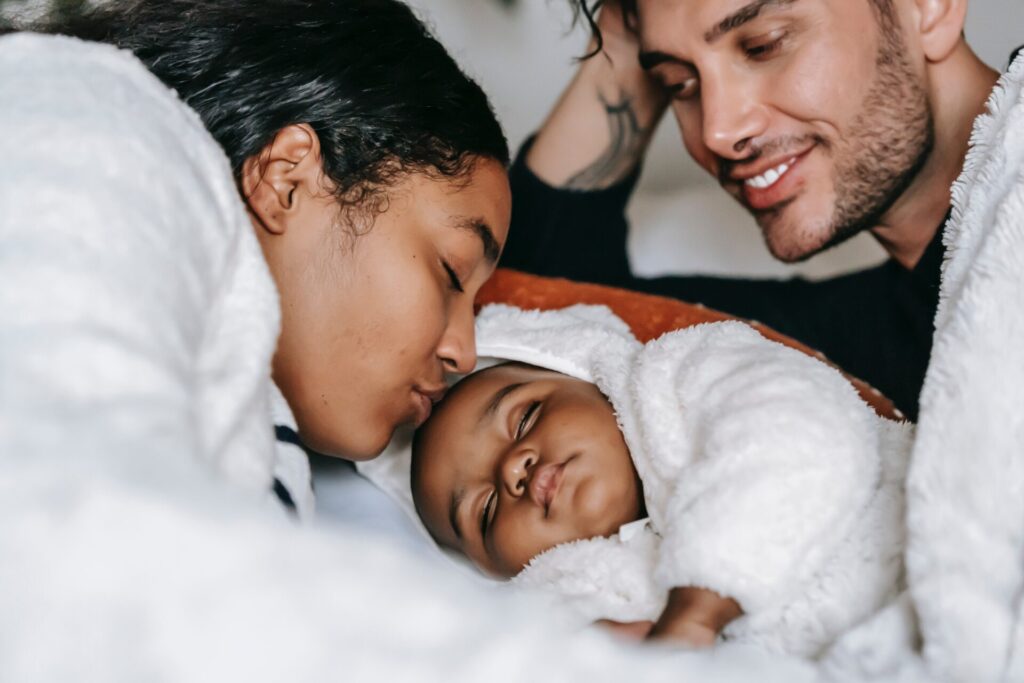

Your Baby’s Sleep
Extinction methods (whereby parents respond / don’t respond to crying) can be hard going for both parents and babies. According to the newer research you should be working with your baby’s biological needs, not against them. Recent neuroscience research suggests that trying to meet your infant’s sensory and environmental requirements is essential for hygienic sleep. A gentle approach does not mean an ineffective one! There is no need to risk the secure attachment your baby feels, and the emotional bond you have with your infant for the sake of ‘sleep training’.
Quick fire tips!
- Keep Calm And Carry On Parenting: Your baby isn’t doing anything wrong – and neither are you.
- Daytime Naps: Don’t obsess over getting your child to sleep during the day. If they happen, they happen. If they don’t, then they don’t.
- Wake Up To Good Advice: So much more of your thoughts and energy should be focused on giving your baby a consistent wake up time rather than a regular sleep time.
- Night-Waking: They may wake up several times throughout the night. Don’t feel bad, it’s completely natural and a sign of a healthy baby.
- Down-Time: Don’t put them down in the crib if they are still crying. Contrary to some conventional advice, this isn’t part of some rite of passage that parents and infants must endure. A crying baby in a cot is not on some magical journey to slumber. And parents who have abandoned their child in a nearby room are not going to feel relaxed enough for good quality sleep either. It is a situation with no positive outcomes.
More information about the training methods that can deal with babies’ sleep patterns and improve parental mood disorders can be found on the Durham University Projects page. There is also a wealth of information about many other infant research developments they are working on.
Looking for more reading?
Already thinking of the next step in your child’s development? Then check out the following:
How To Create The Best Bedroom For Your Child
How To Choose The Best Bed For Your Child
Ultimate Guide To The Best Mattress Protectors
Feeling like managing your baby’s sleep is a little overwhelming? Then our article Why New Parents Shouldn’t Worry Over Managing Their Baby’s Sleep should provide some reassurance.
Are You A Parent In Need Of Help With Your Sleep?
As the research suggests, a lot more focus needs to be spent on increasing the quality of sleep for parents. Great sleep hygiene is essential to a healthy lifestyle and spending quality time with your child.
While you’ve got your baby’s sleep in mind, let us take care of yours. We may not be able to help stop a baby from crying, but once they’re settled down and you’re ready for bed, we can make sure you will be as comfortable as possible for a much-needed deep sleep.
Deciding on the best bed for your needs depends on several factors.
Your favourite sleeping position.
Whether you are a hot or cold sleeper.
Your preferred choice of materials.
How many people are sharing the bed.
Any ailments or allergies you have.
Your body shape and size.
There is no need to lose sleep over trying to choose the ideal bed and bedding for your night-time needs. Our bed experts at Land of Beds pride themselves on their specialist knowledge. Let them help you find the bed and bedding that’s best for your needs.
Our customer-first policy means we listen and give good, independent advice based on the needs of the individual. By pairing consumers up with ethically sourced, affordable, quality products, we provide as many people as possible with a great night’s sleep.
If you’re ready to start taking as much care of your own sleep as you do your child’s, then feel free to get in touch with us on 01928 242829

